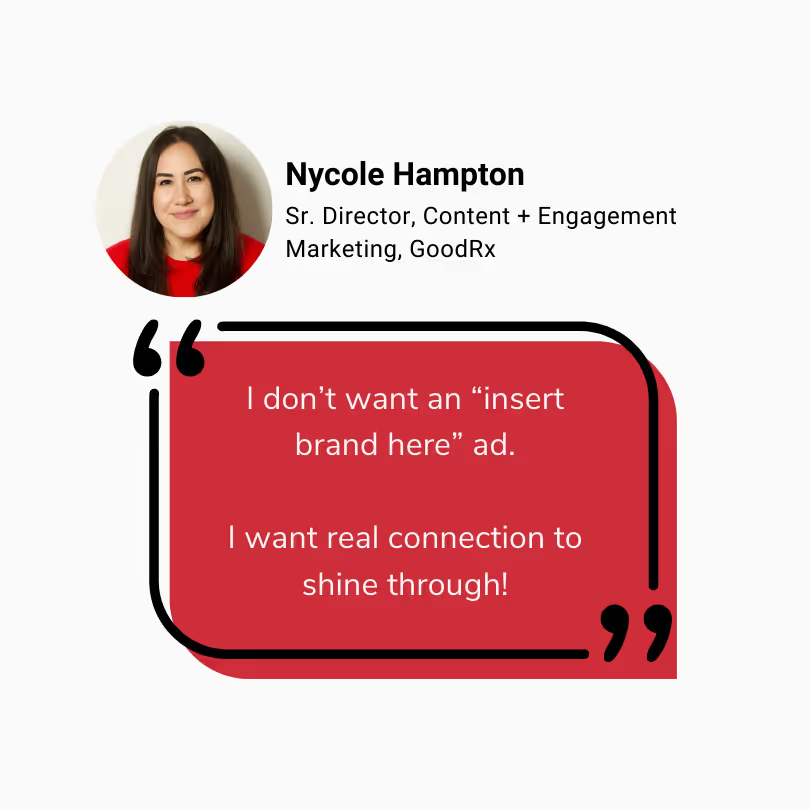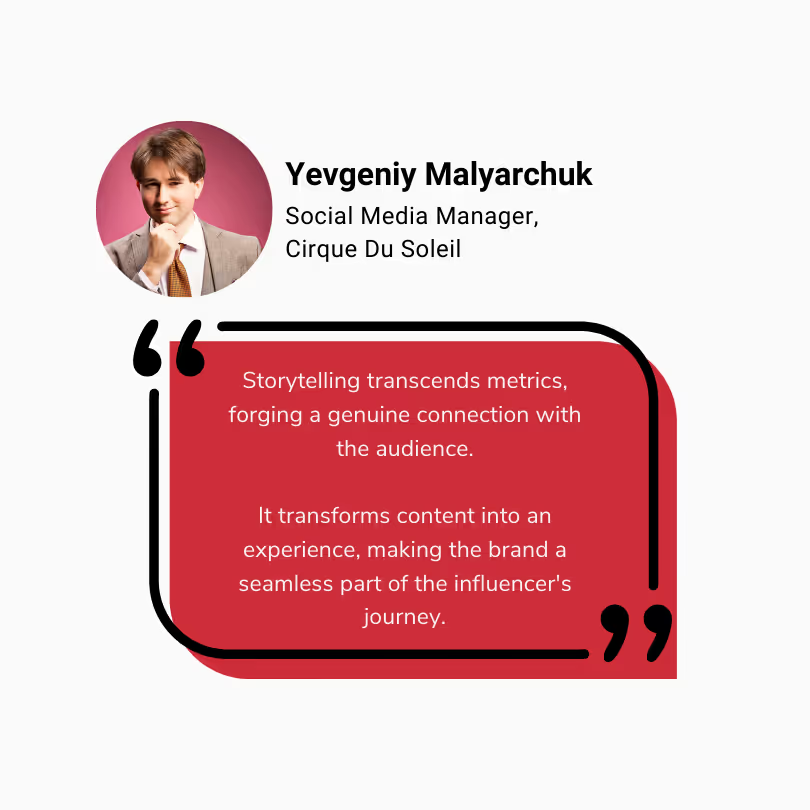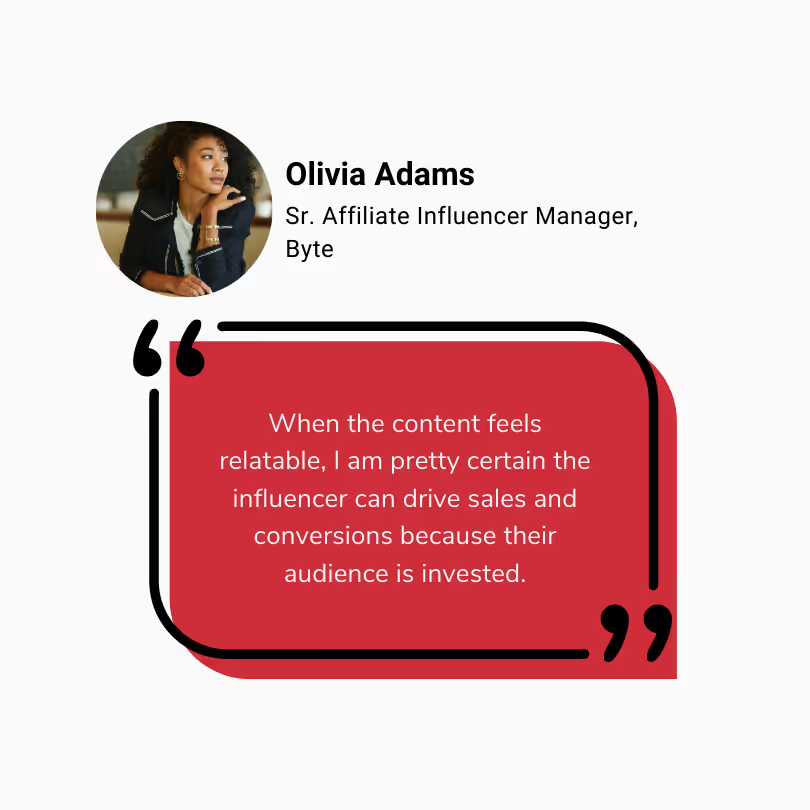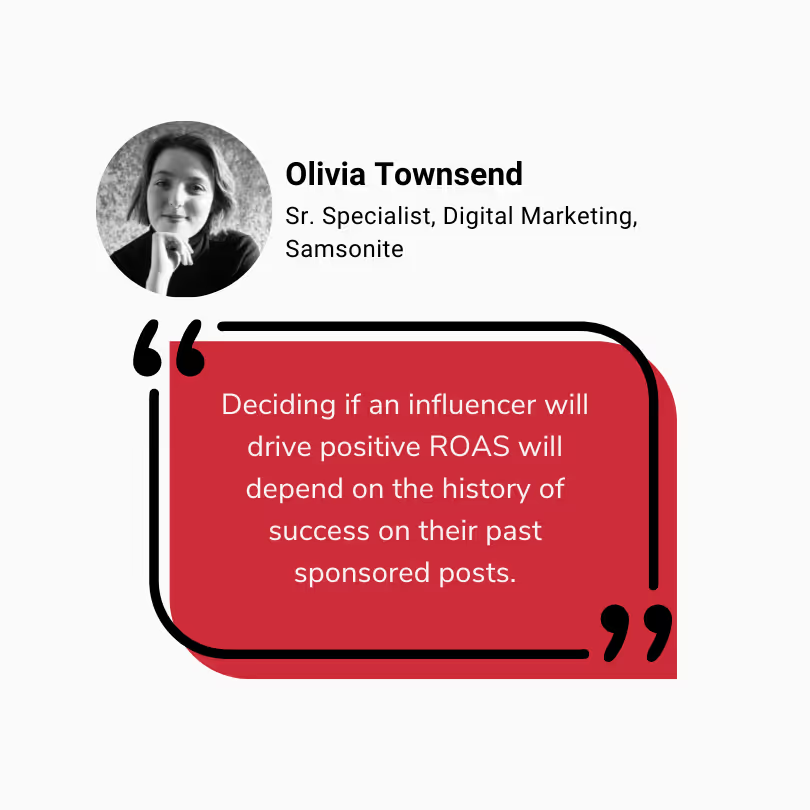Top marketing experts on how to choose influencers for your brand
Leading influencer marketing pros share the not-so-obvious criteria for influencer selection.

When it comes to running a successful influencer campaign, one thing is for sure: it’s all about the influencers you choose.
While metrics such as reach, engagement, content relevancy, and audience demographics are foundational for influencer selection, savvy marketers go beyond these surface-level parameters when vetting influencers for their brands.
In this article, we unpack how to choose influencers who can move the needle for your brand.
Let’s delve into the nuanced criteria seasoned marketers rely on when choosing influencers to partner with.
Choose influencers based on the goals of your marketing campaign
Generally, marketers define 3 primary objectives when it comes to influencer campaigns:
- Awareness uplift
- Target audience engagement
- Customer acquisition
Awareness influencer campaigns
The objective of awareness campaigns revolves around increasing visibility and exposure for your brand. Influencers are chosen based on their ability to reach a broad audience or a specific niche demographic, effectively amplifying brand messaging to new potential customers.
“In our KPIs, we prioritize assessing impact through creator impressions and earned media value (EMV). We specifically focus on understanding the value generated by influencers as contributors to upper-funnel awareness activation rather than concentrating on conversion metrics,” says Olivia Townsend, Sr. Specialist, Digital Marketing at Samsonite.
Through strategic influencer partnerships, marketers can generate buzz and interest, ultimately driving brand awareness and recognition.
Storytelling-focused influencer campaigns
This type of influencer campaign centers on creators’ talent for producing captivating content.
When choosing influencers for content-focused campaigns, you won’t necessarily go after creators with a larger reach or recognition. You can partner with micro-creators and leverage their unique vision and storytelling skills.
Yevgeniy Malyarchuk, who runs social media at Cirque Du Soleil and has over 200k Instagram followers himself, shares his perspective: “I gauge the influencer’s adaptability and creativity, as these traits often translate into more dynamic and successful campaigns.”
Marketers usually resort to influencers when they look to generate brand content at scale. This content can be repurposed across the brand’s own and paid channels, extending its reach and maximizing its impact.
Performance influencer campaigns
Influencer marketing is often solely perceived as an awareness tactic that sits within the brand’s social and PR functions. Yet, influencers can be a powerful customer acquisition channel.
“Influencer marketing isn’t just about brand exposure,” – believes Yuliya Gorenko, who leads performance-focused influencer campaigns for Mischka agency’s clients. “It’s a scalable growth channel that is broadly used by performance marketers.”

Finding influencers who can drive positive ROAS for your brand takes art and science.
Now that you have determined the goals of your influencer campaign, you are ready to vet the influencers.
Key factors to consider when choosing influencers
Authentic connection with your brand
No matter the objective of your influencer campaign, when choosing an influencer partner, you are choosing your brand ambassador. Even if it’s a micro-influencer, you trust them to use their voice and influence to represent your brand.
“Beyond the standard metrics, I prioritize authenticity, assessing if the influencer’s content aligns genuinely with our brand,” Yevgeniy Malyarchuk told us.
That’s why you need to choose influencers who are in sync with your brand values, aesthetics, and vision.
Nycole Hampton, Sr. Director, Content + Engagement Marketing, shares: “Beyond metrics and demographics, I consider if this influencer is a genuine fit for the brand, which may be because they are already a brand fan or the brand fits perfectly into the stories they tell and content they create. I don’t want an “insert brand here” ad. I want real connection to shine through!”

It might be hard to quantify the gut feeling a brand marketer has when it comes to choosing influencers who align with the brand. Yet, Olivia Townsend shares a framework their brand team developed for influencer vetting and evaluation.
“We have created a brand partner filter to look at brand passion areas for our target audience. What affinities does our target audience share with the creators’? What is their connection to the travel category that Samsonite sits in? Are they aligned with our brand voice and guidelines?” says Townsend.
Another crucial aspect to look at is value alignment. You need to know what your brand stands for and what principles you aim to propagate with your brand communications.
“Today’s influencers extend beyond just product promotion on social networks; they often broadcast their opinions on significant social and political issues. As an influencer marketing specialist, it is crucial to make sure that an influencer’s values are in harmony with your brand’s ethos prior to initiating a collaboration,” believes Maria Kazakova, Head of PR & Influencer Marketing at SE Ranking.

As a brand marketer, you live and breathe your brand. You understand your brand DNA, feel your brand voice, and have a strong vision of what’s right for your brand.
Your influencer partners need to share your brand’s core values.
The power of storytelling
The real magic of influencer marketing, compared to other media channels, lies in the genuine human connection.
“One of the most important but underused criteria is quality of engagement vs engagement rate,” continues Nycole Hampton. “ER is outdated and tells you so little, it also doesn’t do a fair job helping you flag potential fraudulent activity. When it comes to quality of engagement, there is so much you can uncover in a creator’s comment section, like whether or not they’re using comment pods, can they drive real influence and action, and finally, are they nurturing and valuing their community?”
When picking which influencers to team up with, it’s important to see if they’ve got what it takes to keep their followers engaged. You want someone who can spark real conversations, get people talking, and genuinely interest their audience.
“I value storytelling. The ability of an influencer to weave a captivating narrative is paramount. Storytelling transcends metrics, forging a genuine connection with the audience. It transforms content into an experience, making the brand a seamless part of the influencer’s journey. A compelling story resonates emotionally, leaving a lasting impact and driving engagement that goes beyond surface-level metrics,” says Yevgeniy Malyarchuk.

Relatability
To make an educated guess on whether a certain influencer will drive positive ROAS, look at how relatable the influencer is to their community. Relatability plays into trust as the message and its delivery strike a chord with viewers.
“The not-so-obvious criteria I consider is the influencer having to be polished – I want the influencers I work with to be themselves and feel like they have creative freedom,” says Olivia Adams, Sr. Affiliate Influencer Manager. “One major factor I consider is how they respond to their audience and how authentic their content is. Does it feel relatable, raw, organic? When the content feels relatable, I am pretty certain the influencer can drive sales and conversions because their audience is invested.”

Look at how the influencer handles sponsored posts and integrations. Do they stay true to themselves and keep things genuine?
“If you look across their sponsored vs non-sponsored content, you can see how engaged their community is,” adds Nycole Hampton. “Are they just as invested in the products/services a creator talks about or are they commenting on irrelevant visuals? This is where you need to layer on a behavioral lens to audience interactions to gauge value.”
Past brand partnerships
The history of an influencer’s paid partnerships can tell you volumes. Don’t hesitate to ask the influencer to provide examples and share the results of their previous brand deals.
“Deciding if an influencer will drive positive ROAS will depend on the history of success on their past sponsored posts,” believes Olivia Townsend. “Also, what is the quality like for those posts? We like to create strong briefs to receive strong concepts that align with the campaign. Knowing what the content will be (and massaging it if needed) helps us determine what the success of their post will look like.”

Maria Kazakova shares a similar approach: “I consistently request that influencers provide examples of their previous collaborations with similar products, along with their insights on the performance of these collaborations. Key questions include: Was the campaign successful, and if so, why? If not, what were the reasons for its limited effectiveness? While metrics such as reach, comments, and overall engagement are vital, they are not the only considerations. An influencer’s ability to critically evaluate their content and actively investigate what truly resonates with their audience is essential. Without this reflective approach, achieving outstanding results is less likely.”
While brand partnership history is a crucial factor, be sure to stay open-minded. You don’t want to miss an emerging influencer star in your industry who might not have a brand deal history yet. When you spot a new talent in your niche, it’s beneficial to establish an early relationship with them by helping them grow their influence.
Takeaways
- Successful influencer campaigns rely heavily on choosing the right influencers.
- Metrics like reach, engagement, and audience demographics are important, but savvy marketers dig deeper.
- Key factors in influencer selection include:
– authentic connection an influencer has with your brand and alignment with brand values
– influencer’s ability to compose engaging stories
– relatability as a crucial aspect for establishing trust
– history of successful brand partnerships.
You might also like











































